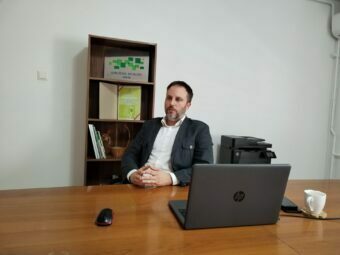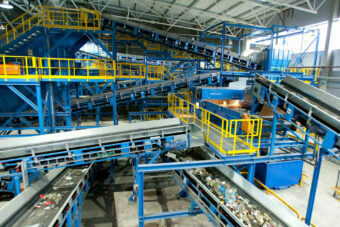
The origin, composition or concentration of dangerous substances that can cause danger to the environment and human health determine the categorization of an object as hazardous waste. Products that become special waste streams after use include tires, batteries and accumulators, electronic and electrical products, mineral and synthetic oils, vehicles, and medicines.
Special waste streams are controlled separately by regulations. They do not represent municipal waste, and it is forbidden to dispose of them in landfills. They must be treated with adequate technology following the law to prevent mercury, lead, cadmium, barium, and other elements from being released into the ground, water, or air. Even the recycling process itself carries a high risk to the environment.
Since 2010, when a system of incentives for reuse and recovery of waste was established, our recycling industry has disposed of one million and one hundred thousand tons of waste. During the last year, 120,000 tons of special waste streams were collected, and according to the data for this year, this trend continues.
IN FOCUS:
- BAMBI’S STRONG AND STRATEGIC COMMITMENT TO SUSTAINABLE SOLUTIONS
- A BETTER LEGAL FRAMEWORK AND INCENTIVE MEASURES ARE A CONDITION FOR THE DEVELOPMENT OF THE RECYCLING INDUSTRY
- THERE IS NO ALTERNATIVE TO RENEWABLE ENERGY
“Waste tires were recycled the most — more than 470,000 tons. The public somewhat neglects tires compared to some other types of waste. Still, they are easily flammable, so in landfills where they often end up and where there are frequent fires, it can happen that due to inadequate disposal, in case of combustion, numerous gases are released into the atmosphere harmful substances and poisonous gases, such as dioxins and furans, which are believed to be among the most toxic compounds ever made by man. After this explanation, it becomes much clearer why tires are potentially very dangerous. After tires, the largest amounts of electrical and electronic waste were disposed of 350,000 tons, 220,000 tons of batteries and 55,000 tons of waste oil,” explains Marko Vučenović, Secretary General of the Recyclers Association of Serbia.
Collection of hazardous waste

When we talk about special waste streams, the collection of hazardous waste from economic entities is clearly regulated, both in terms of their obligations and the possibilities and rights of collectors and operators. However, the problem arises when this type of waste comes from households. There is no regulation or infrastructure whatsoever.
“Local self-governments do not have a developed system for collecting special streams of waste, most often, they do it sporadically, and that is by organizing an action to collect this type of waste from citizens once or several times a year. It would be extremely important for local governments to establish centers for collecting special waste streams, which they are legally obliged to do. It is especially important for small household appliances that citizens could easily bring to dedicated centers so that these appliances would not end up in containers. For large devices, citizens often cannot provide transport, and one of the solutions can be for public utility companies and authorized operators to organize collection from citizens”, says Vučenović.
Prepared by: Milica Radičević
Read the story in the new issue of the Energy portal Magazine Waste Management.



